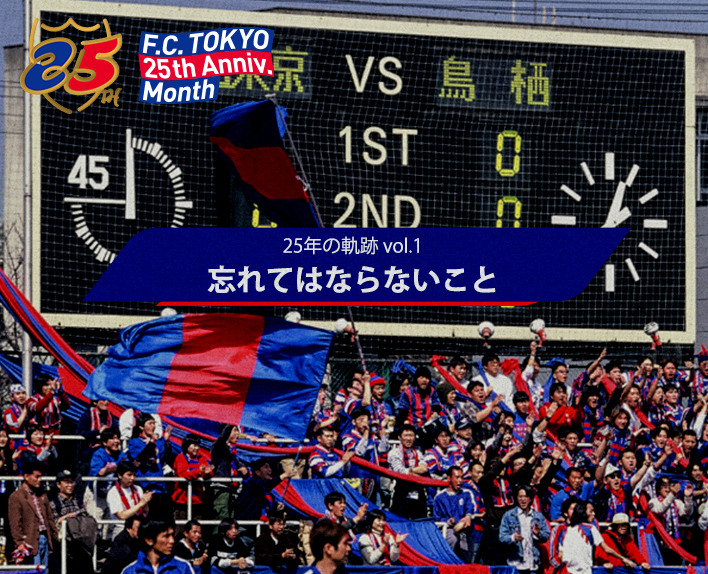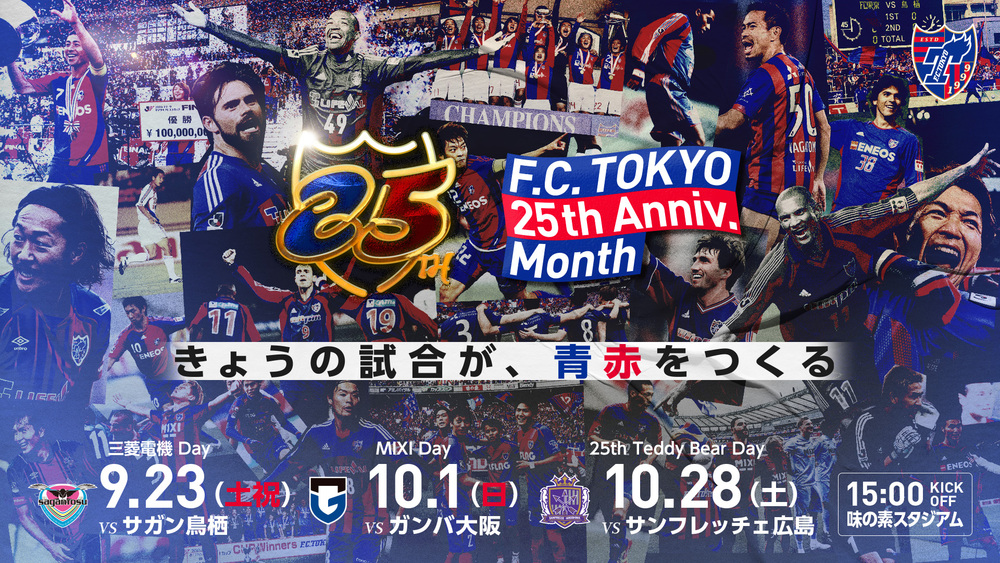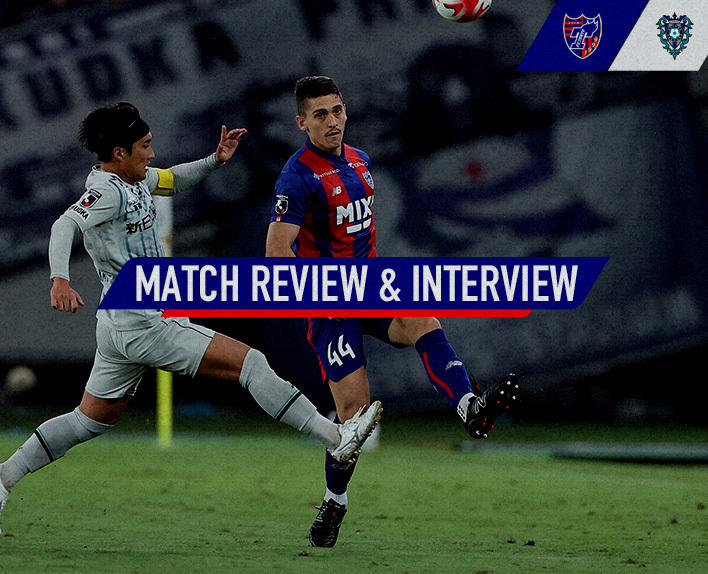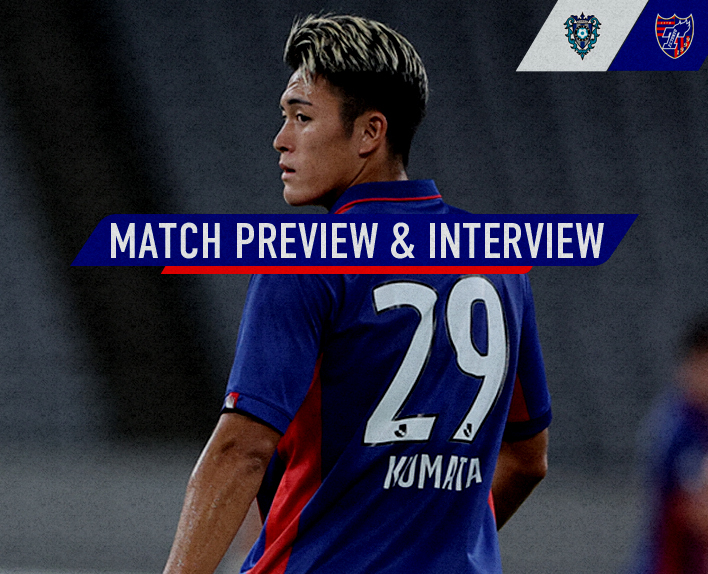On October 1, 1998, Tokyo was born as the first professional club to have Tokyo Metropolis as its hometown.
Looking back to the past, since the glorious opening of the J-League, there was a momentum for the predecessor Tokyo Gas Soccer Club to turn professional. The team, which was strengthening, invited Amaral from Brazil for the 1992 season. Ryuji FUJIYAMA, who joined as a "company player" in the same season, signed a professional contract in the 1994 season.
However, after that, they found themselves in a situation where they had no choice but to give up on turning professional. Nevertheless, the team did not stop moving forward and aimed to grow steadily.
In the 1994 season, they reached the quarter-finals in their first appearance in the Emperor's Cup. In the Japan Football League (JFL), they consistently ranked among the top teams. Encouraged by their good performance, they announced their participation in the J.League again for the 1997 season and continued their proactive activities towards professionalization. At the same time, in the Emperor's Cup of this season, they defeated Nagoya Grampus, Yokohama Marinos, and Shonan Bellmare Hiratsuka, achieving a place in the top four.
With the slogan "A team that is loved strongly," in the 1998 season of JFL, we surpassed Kawasaki Frontale by 1 point in the final match and snatched the championship in a "lucky" manner.
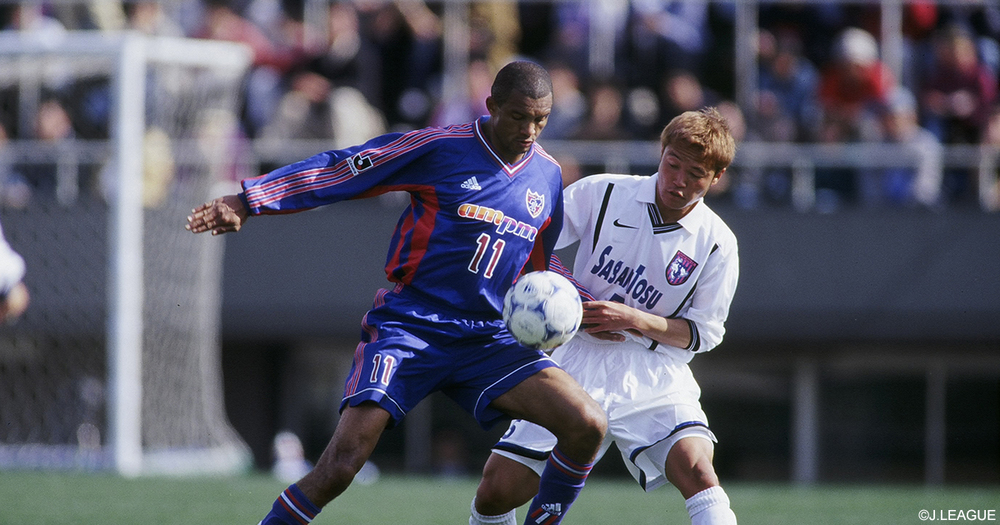
At that time, coach Kiyoshi OKUMA thoroughly instilled the principles of soccer and a common understanding for winning. To utilize Amaral's scoring ability, he adhered to a solid defense and quick counterattacks. Even if it was gritty, they did not lose in running, with Sandro and Takayuki KOMINE putting their bodies on the line in the final defense. In the midfield, balance was emphasized. While acquiring numerous big names as defensive midfielders, it was also impressive that Satoru ASARI secured his position for a long time.
Even after moving the stage of battle to the J-League, we retained many of our employee players and aimed to challenge with a consistent style. While respecting teams like Verdy and Júbilo Iwata, we leveraged the advantages of being a latecomer in the J-League, sometimes using the senior teams as a learning tool.
"Once on the pitch, it doesn't matter if you're a professional or an amateur" -- The 1999 season of the J2 League, where they struggled to grasp something as players who were nothing as professionals.
In the opening match against Sagan Tosu, 3,685 spectators visited the National Nishigaoka Soccer Stadium. It is hard to imagine now, but there was joy overflowing with the thought of "3,000 people!" and an intense battle unfolded.
In the 4th minute, Hayato OKAMOTO scored with a lob shot after receiving a through pass from Kensuke KAGAMI, breaking through the defense. This goal is not only recorded as the first goal of the J2 League, but it also marked a memorable moment in Tokyo's kickoff. The ace Amaral also scored, leading to a 2-0 start with a victory, and they steadily accumulated points in the J2 League.
In their first participation in the Nabisco Cup, they showed a remarkable performance, advancing to the Semifinal Round. They pushed Kashima Antlers to the brink, and Yukihiko SATO was also awarded the New Hero Award.
The spirit of giving our all in the current match has borne fruit, but it can be said that the team strength and composure to balance both cup and league matches are still lacking.
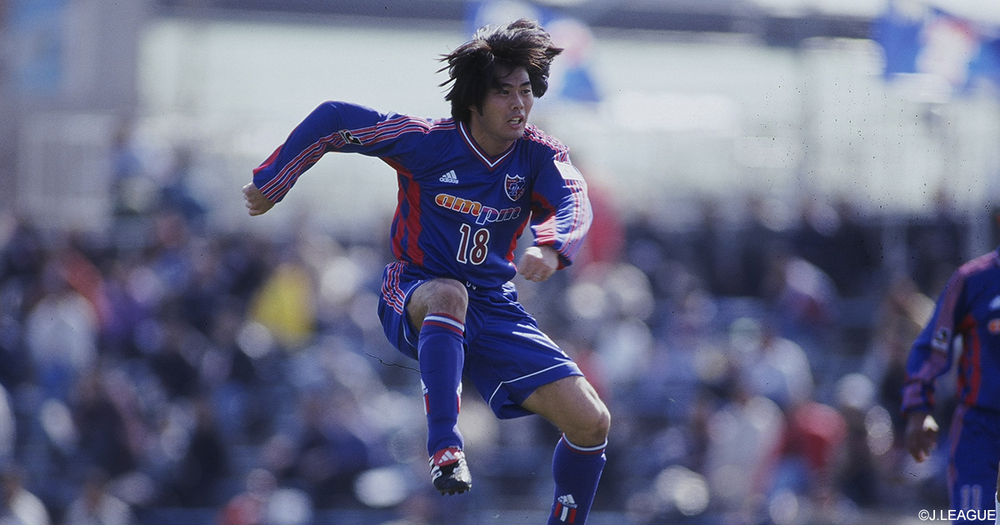
After the Nabisco Cup, the team suffered consecutive losses in the J2 League, starting with a defeat to Tosu. They only earned 3 points in 5 matches. Before the final match, they lost to Vegalta Sendai and the players were in tears as they fell to 3rd place.
Still, without anyone saying it, everyone gathered and switched their mindset to "We can only do what we can do and what we must do." That sense of unity and passion to fight through led to a dramatic promotion.
On November 24, in Sec. 36, we faced Albirex Niigata away. Kensuke KAGAMI scored a long-awaited goal, leading us to a 1-0 victory. Meanwhile, Oita Trinita, who was in second place at that time, conceded a free kick to Tatsuma YOSHIDA of Montedio Yamagata in the 89th minute, resulting in extra time. If it ends in a draw, they will remain with 1 point, allowing Tokyo to rise to second place.
It was an era without live updates on the internet, but Masamitsu KOBAYASHI connected with a friend in Oita and continued to inquire about the situation. The moment Oita and Yamagata ended in a draw, the first to dash from the bench towards the stands was Takashi OKUHARA. Supporters jumped down from the stands, creating a circle of joy. It was a generous time when such actions were allowed and viewed with affection, embodying the belief that "if you don't give up, something will happen."
The team that has caused giant killings and numerous "dramatic developments" has captivated even the somewhat rude (if I may say so) football enthusiasts.
With the初心 of always being "strongly loved" engraved in our hearts, each of us continued to pour our unwavering passion into soccer. There is no doubt that this has laid the foundation for being a club worthy of the J1 League.
Time goes around and circulates. The scale of the club, the maturity of the team, and the world surrounding soccer, as well as the environment in Japan, are significantly different from then to now. It is likely an era where we are required to think more globally and cannot survive by only acting locally.
There are still things we must not forget. To give our all in the current match, to never give up until the end—this fighting spirit and passion have lit a flame in people's hearts and given them courage.
Text by Yu Fujiwara (Freelance Writer)
*The team name at the time of the article is listed.
[25 Years of Journey] Special Column Here
25 Years of Journey vol.2 The Road to the First Title
25 Years of Journey vol.3 Blue Tokyo
